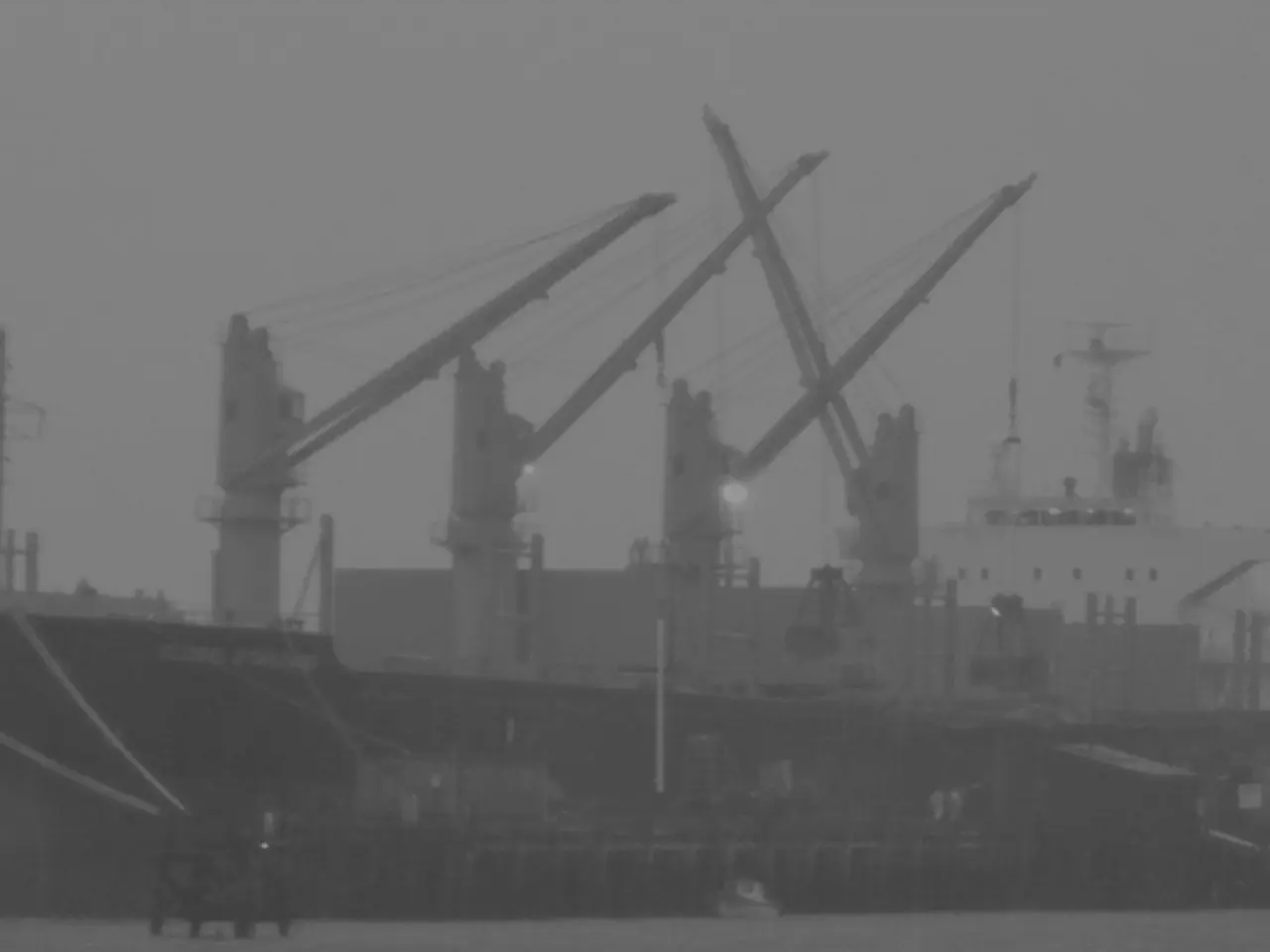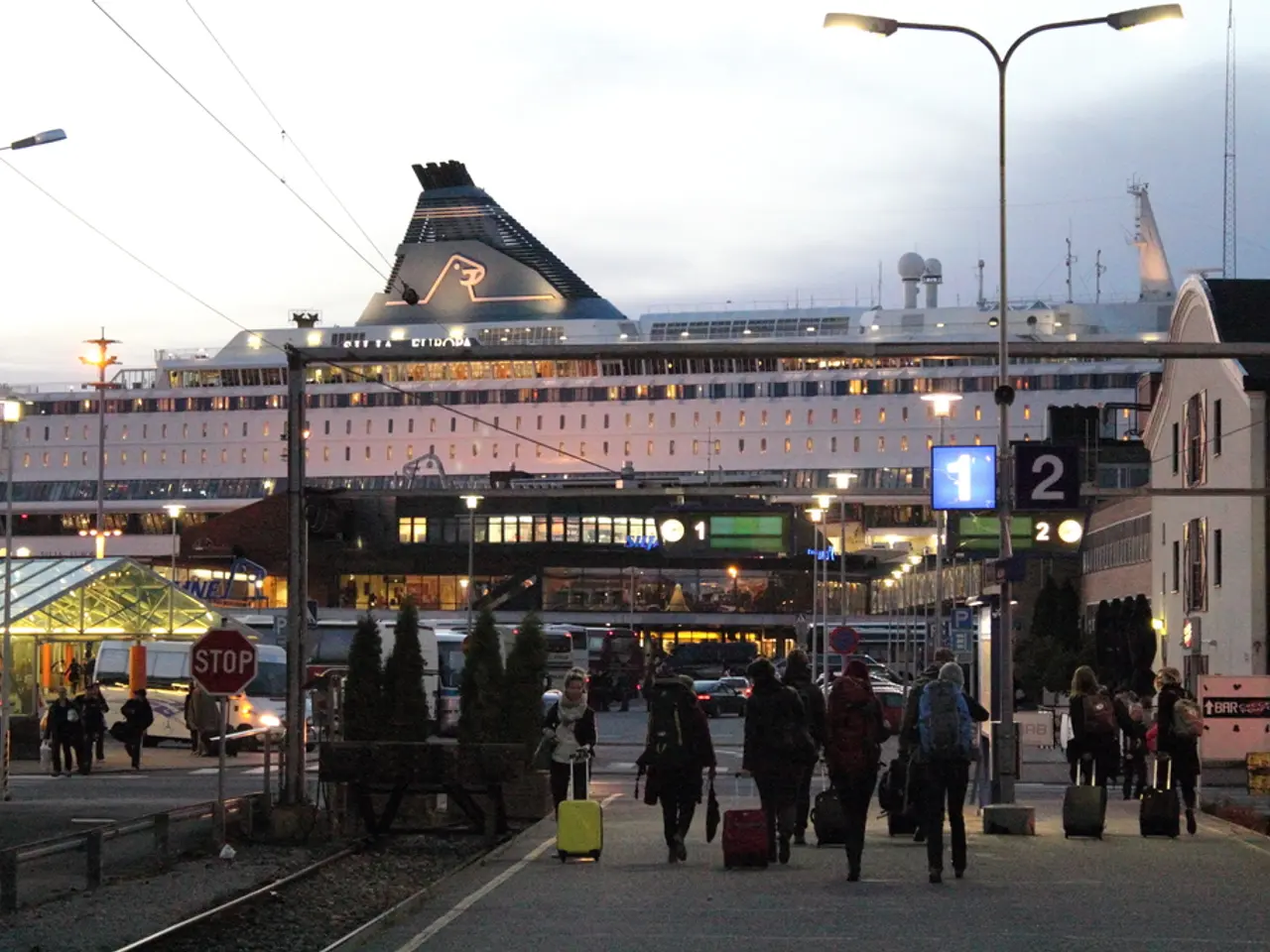Tampering Tensions: Worldwide Shipping Industries Prepare for Consequences Following American Attacks on Iran
The world's shipping industry is bracing for potential disruptions following the U.S. airstrikes on Iranian nuclear facilities on June 24, 2025. The precision strikes, which targeted key underground infrastructure at Fordow, Natanz, and Isfahan, have set back Iran's nuclear program by up to two years, according to Pentagon assessments.
The Strait of Hormuz, a critical chokepoint through which about 20% of the world's petroleum passes, is of particular concern. Tensions in this region typically raise concerns about potential disruptions in oil supply and shipping security. With the U.S. strike being a major escalation in the Israel-Iran conflict, the risk of Iranian retaliation has increased, potentially targeting shipping lanes including the Strait of Hormuz.
While direct disruptions to global shipping or closures of the Strait of Hormuz immediately following the strikes are not explicitly detailed in the available reports, historical precedent suggests heightened risks of shipping delays, increased insurance premiums, and naval escort operations by international coalitions to protect commercial vessels in response to escalating military tensions.
The European Union Naval Force has elevated its threat level for U.S.- and Israeli-linked vessels, and the Joint Maritime Information Center (JMIC) has warned that U.S.-linked ships in the Red Sea and Gulf of Aden now face a "high risk" of attack. Iran may potentially retaliate against commercial vessels in key maritime corridors, and all commercial shipping may eventually be exposed to risk, according to the European Union Naval Force.
The Greek shipping industry, which operates one of the world’s largest merchant fleets, is likely to be affected by any disruption or threat to the Strait of Hormuz. Escalations in the Middle East generally lead to market uncertainties and could prompt Greek shipowners to reroute or increase security measures to avoid risk areas, potentially increasing operational costs.
Greece's advisory to its shipowners to reconsider sailing into the Persian Gulf, particularly through the Strait of Hormuz, could significantly impact global commodity flows, especially oil, given its dominance in the tanker market. The potential closure of the Strait of Hormuz could mark a seismic disruption to global energy and cargo supply chains.
Despite the challenges, some Greek shipping firms are reassessing their decisions, while others may continue transiting Hormuz if rates rise high enough to offset the risk. The U.S. is seeking international support to prevent a potential blockade of the Strait of Hormuz by Iran, and the ongoing tensions between the U.S., Israel, and Iran continue to escalate.
[1] Pentagon Assessments: https://www.defense.gov/Newsroom/Contracts/Contract-View/Article/2626780/ [2] Iranian Response Threats: https://www.reuters.com/world/middle-east/iran-vows-harsh-response-if-us-attacks-nuclear-sites-2021-08-02/ [3] Global Shipping Impact: https://www.lloydslist.com/latest-news/shipping-and-trade/shipping-news/greek-shipping-ministry-advises-caution-as-us-airstrikes-in-iran-heighten-tensions-2025-06-24-01-00-00
- The recent precision strikes on Iranian nuclear facilities have raised concerns within the container shipping industry, as disruptions could potentially occur due to escalating tensions in the Middle East.
- As the Strait of Hormuz, a crucial passageway for global trade, is of particular concern, the shipping industry is bracing for shipping delays, increased insurance premiums, and potential naval escorts to ensure commercial vessel security.
- Politics, war-and-conflicts, and general-news updates suggest a possible Iranian retaliation targeting shipping lanes, which might expose all commercial shipping to risk.
- The general uncertainties in global trade due to these tensions could impact finance, with shipowners potentially rerouting vessels or increasing security measures to avoid risk areas, thus increasing overall operational costs.




